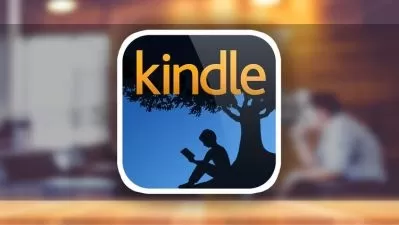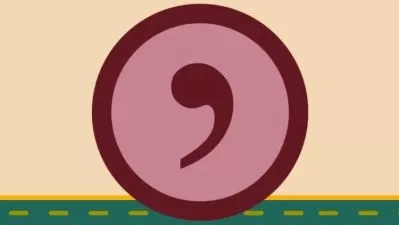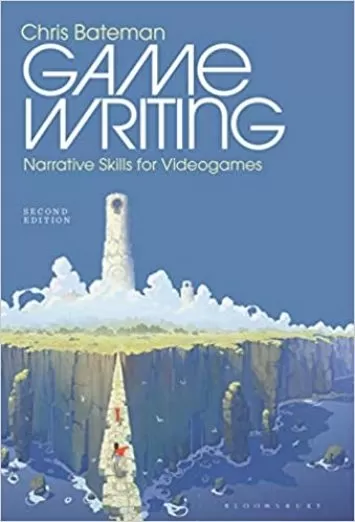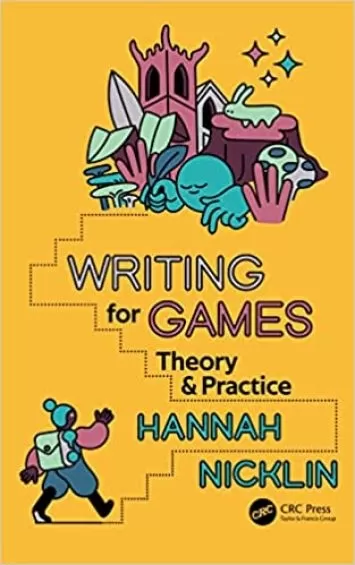About WritingLearn More
Writing classes improve your written communication and storytelling abilities. Strong written communication skills are essential in business. Accurately and concisely conveying strategies and ideas make for a more efficient operation. Polished writing enables functional coordination and can significantly impact marketing campaigns, improve written storytelling, and better the capability of emotional exploration through journaling.
Sort by:
Sorting
The newest
Most visited
Course time
Subtitle
Filtering
Courses
Subtitle

Udemy


Dr. Katharina Grimm
Inclusive UX Writing: Gender, Race & Age 3:21:35
English subtitles
11/16/2022
Subtitle

Udemy


Wealthfidence Academy
Create Successful Authority Blog in Any Niche That Converts 56:52
English subtitles
11/16/2022
Subtitle

Udemy


Benjamin Wilson
Kindle Secrets: How I Wrote a Best Selling eBook In 72 hours 3:23:54
English subtitles
11/14/2022
Books
Frequently asked questions about Writing
When you write, you express your thoughts or ideas through the medium of text. Writing may involve a pen and paper, or you might opt for a digital device like a computer. No matter which writing tool you use, the practice of writing remains the same. During your daily life, you probably encounter many different genres of writing. You might scribble down grocery lists, send text messages, or fill out forms. You may also browse through marketing copy, like magazine advertisements. If you're a student, you might be assigned essays or term papers. If you work in an office, you might review articles, business proposals, and resumes. After work, you might skim through a novel, screenplay, or poetry volume. These texts may seem very different at first glance. But each one is a unique type of writing.
You can split written works into two genres: fiction and nonfiction. The fiction genre includes novels, short stories, and poetry. Fictional works involve imaginative elements created by the author. People who write fiction enjoy making up stories. They may invent characters, settings, and other details. Sometimes, fiction writers even make up brand-new words. Fiction is often termed 'creative writing.' Nonfiction is different. This genre deals with factual elements, including historical events and real people. The nonfiction genre covers academic writing and journalism. Scholarly works include essays, research papers, theses, and dissertations. Journalism often includes newspaper articles or digital news updates. The nonfiction genre also covers biographies, historical texts, and educational materials.
Novice writers might find writing challenging at first. But this skill becomes easier with practice. A writing course on Udemy can help boost your confidence and build your skillset. Writing instructors teach their students how to structure their writing passages. They share tips and tricks that make writing easier. Students can grow their vocabulary, polish their grammar, and freshen up their spelling skills. During a writing course, students also get in touch with their unique voices. They create written passages that reflect their beliefs, ideas, and passions. Students evaluate their writing and sharpen their editing skills. Aspiring writers often schedule daily writing sessions. Practicing helps strengthen your abilities and reinforces your learning.
If you're looking for a job, developing your writing skills can help. Most employers look for candidates with strong writing skills. Good writers can communicate successfully with coworkers, clients, and customers. Writing talent may boost your chances of landing a job in many different fields. Many office workers, including managers and executives, use their writing skills daily. Journalists, publicists, social media managers, and copywriters also do a lot of writing. If you're good at spotting errors, you might want to explore editing or proofreading jobs. Writers with engineering skills may be a good fit for technical writing positions. These writers often create repair manuals for offices or manufacturing plants. Some creative writers might prefer to pursue projects like novels. They may decide to become a poet, author, or memoir writer. Others may lean toward teaching or tutoring. English teachers use their writing skills to educate the next generation of writers.
Grammar is a systemic approach to language that serves as the backbone of written work and provides writers with helpful, consistent rules. These rules make your writing clear, concise, and easy-to-digest. Poor grammar can interfere with communication and readers might have a tough time understanding the message. But grammar is a learnable skill and a writing course can help polish up your grammar. Word processing software and digital tools offer some support, too.




















